Far Away Eyes’ Deeper Look Supernatural 12.06 “Celebrating the Life of Asa Fox”
“Celebrating the Life of Asa Fox” is perfectly named. Amidst mourning a death, we see life truly cherished and celebrated. After all, dying is easy. It is living that is hard to do.
Everyone at the wake has a reason to live—a story about Asa or about the hunter’s life or a connection to how messy and hard it can be. Those stories, too, give us reasons why they continue to fight, to hunt—to live. Thrust into their grieving is the added crisis of a demonic possession—and the desperate fight to keep as many of them alive as possible. It is a test for Sam, Dean, Mary, and Jody as they all convene on Asa’s family home—and each of them has to learn how to simply live despite all the odds.
First, let’s look at the case itself.
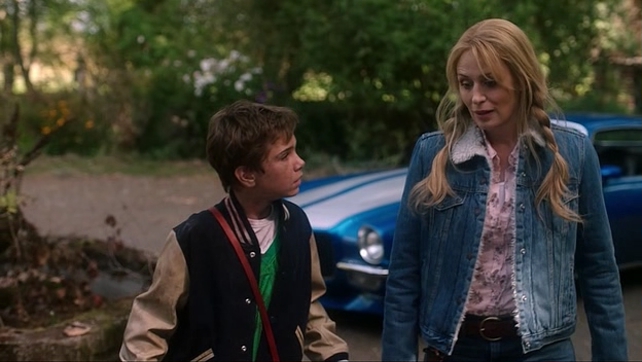
In 1980, Mary has gone on a hunting trip, saving a young boy from a werewolf. By this time, she should have been firmly retired, living quietly in Lawrence with her baby, Dean, and her husband, John. Mary has left the life behind to find the quiet of normal and safe. Instead, she’s out and about “tying up loose ends.” It is a moment that will change Asa’s life forever. She will leave a lasting impression on the young boy—all revolving around her statement on retirement no less. He is concerned that if she’s not out there hunting the bad things like this werewolf that no one will. Who will save people like him if not for people like her?
And so, Asa commits himself to the life—much to his mother’s dismay. He has spent years since then investing his time in learning lore and knowledge. He has worked case after case to do for others what Mary has done for him. It hasn’t been easy and it hasn’t always been clean, but Asa has spent the decades working to make the world a better place. That is, until now when he has met his demise as hunters inevitably do. He has been chased through a forest and hung up on a tree, silenced. His death brings tragedy to the hunter community, to his mother, and to their family home. It brings the hunter community to that home to mourn and say goodbye to one of their own.
It is in celebrating his tragic death that the fundamental questions of choosing life over death or a rebirth amidst death begins.
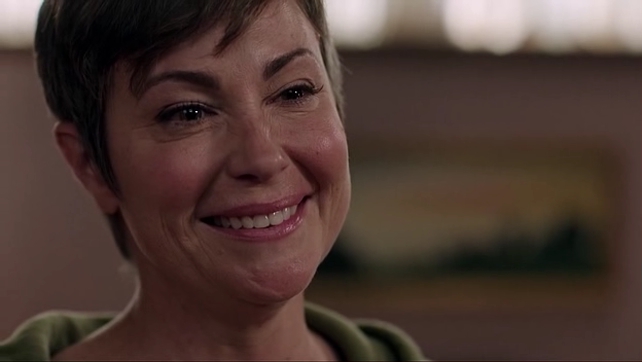
Jody experiences it firsthand as she invites the brothers into her home after they’ve finished a hunt in Brookings. They’re lazing on her couch, watching some “rom-com” movies with her, and simply bonding as a family when the tragic news hits hard. A phone call comes and she is emotionally shattered, telling the brothers, “Yeah, yeah. He was a hunter. He rolled into town a few months back and tried to convince me he was FBI Agent Fox Mulder. He was chasing a pack of ghouls and I helped. He passed through every once and while and we’d grab coffee or… something. Oh, he was a good man. The wake’s tonight and they’re going to salt and burn the body tomorrow. I can’t believe I just said that like it was something normal.”
Jody hasn’t been in the hunter’s life for as long as Asa, but she has faced enough of it to know about the community and what his passing means. She saw him as a good man, someone who worked hard to save others from dark and terrible fates. She understands that this could have always been the outcome for someone like Asa. That doesn’t mean, however, that it doesn’t hurt. In the midst of the darkness of the world, another light has been snuffed and she has to say goodbye to someone she valued. Jody’s shaken, but demanding that she’ll be fine. She doesn’t need Sam and Dean to tag along—but she won’t fight them when they insist on letting them come along “as a favor.”
In this way, it is a testament to another lesson about life that she teaches Sam and Dean with this action. By not refusing their company, she is allowing them to help her when she needs it most. She is accepting that she can’t do this by herself or that she shouldn’t have to shoulder things alone. The Winchester brothers have often needed to learn this lesson—and it doesn’t always stick. This is a private moment of pain for Jody—the loss of her friend and lover hits hard—and yet she is willing to embrace Sam and Dean’s empathy and lean upon them when she needs to most. It is a strong person that reaches out and accepts help—and it is something each of us must do when we choose to embrace the difficulty of living life.
When they arrive to the house, Jody is greeted by Asa’s mother. Lorraine’s house has been overrun by “loud, drunk hunters,” and the scene has a rather celebratory mood throughout it. Underneath, though, it is apparent that Lorraine is struggling with the loss of her son more than she’s willing to fully admit. She quips, “My son’s dead body is in the parlor, but I haven’t slit my wrists yet. Small victories.” It is another instance about how much harder it is to live than to die. Her pain is immense as a mother. She has lost her child, her grown son, and now has to face those she blames most for his death head on. Lorraine hated that Asa devoted so much of himself to this cause. Its danger frightened her. It took so much from him and she resents what it cost him—and her. Now, she must say goodbye to him and share that pain with those in this life.
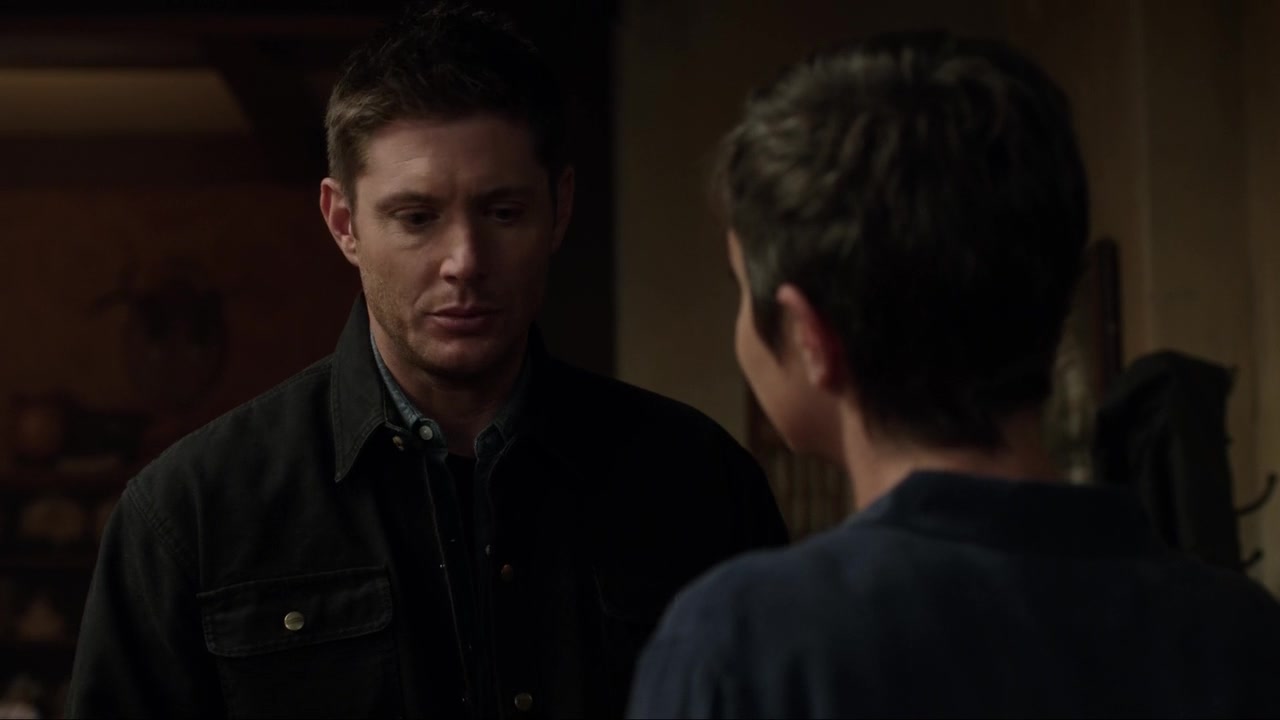
Jody, a mother, can relate to that problem. And yet, that isn’t who Jody will bond with on the question about living or dying. Instead, it will be both Dean and Mary. As they continue the wake, the stories being told about Asa through the years and the hunts, a special guest arrives and intrudes. It is Mary Winchester, arriving to pay her own respects and say goodbye to the little boy she once saved so many eons ago before her own death and resurrection. Her arrival shakes Jody—and she is overjoyed to meet Sam and Dean’s mother, giving her a big hug.
And yet, as she sees Dean struggle with his mother’s presence, she isn’t afraid to confront him over the matter. Dean, reticent as always, tries to cover up his pain or anxiety. Jody can tell that this bothers him a lot. She approaches him about it, calling him out, “Huh. Is that why you spent the entire ride up here telling me in extreme, excruciating detail how you killed Hitler, but, uh, you neglected to mention the fact that your mom is back from the dead?”
Dean tries to scoff about it, tries to pull away, and Jody puts her foot down. She tells him, “If I could have my son and my husband back, I mean really back, I would give anything, absolutely anything to have that and it would scare the hell out of me. What if I’ve changed. What if they’ve changed? What if it just didn’t work out the way I wanted. If you want to talk about anything, absolutely anything, I’m here.” These are the very questions circulating in Dean’s head right now. These are the very concerns that plague him and drive him to avoid any discussions on his mother and her departure. It is too hard, too much, and the pain is easier to push away than to handle. In this manner, he is avoiding the messy business of living despite how hard it can be. He’s distancing himself from any chance of repairing things with his mother because he’s afraid that in the end she’ll leave once more—that he’ll mess it up or she’ll reject him. It leaves things in a rather stagnant and precarious situation for both of them—and Jody can sense this.
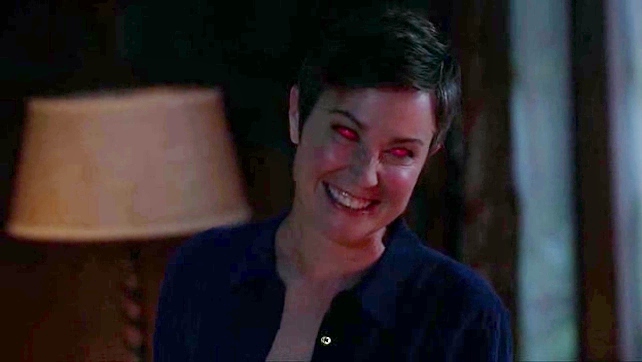
As the case intrudes even more on the house, though, Jody is tested ultimately. They have lost another hunter to a demon—one that is responsible for Asa’s death already. That demon has infiltrated the mourners through possession. It will body jump from one person to the next, keeping the house on lock-down while they struggle to fight against its evil. Jody ends up searching the house with another of the other hunters while it jumps from Alicia to Elvis to someone else. As Sam and Dean set about making a Devil’s Trap and working to figure out just who is possessed, Jody begins to act strange and spout wild notions.
She whispers to Sam, “This is awkward, I’m owning that, but the demon, I think it’s in you mom.” As Sam—and then Dean—question her reasoning, Jody becomes ever more insistent. She shouts that they should kill Mary. She’s the demon, after all. She becomes almost hysterical in her claims—all a red flag that this isn’t Jody anymore at all. In this moment, Jody faces life and death in its cross-hairs literally. She’s been possessed by the demon and now it’s either down to exorcism or the demon killing or angel blade to stop it. One could free her from the demon and let her live, the other will end in her own bloody execution.
The demon knows that the hunters will hesitate in killing her. They know that Jody is seen as important and necessary. It knows that they love her. And so, it allows the demon to taunt them all and overwhelm them with its power as they attempt to save Jody. It knows it only has so much time to do as much damage as possible, too. And so, it goes about taunting everyone about their secrets or innermost pain so to divide and conquer. It will mock Sam, saying, “I so desperately want the Lucifer thing to be true. The idea that he left a meat suit alive is deliciously weak.” The demon will mock the twins, Alicia and Max, for not sharing the truth about their attendance to Asa’s wake: they’re his children. The demon will out the truth about Asa’s death—furious that it didn’t get to do the deed. It snarls, “Asa was mine!” Instead, it was Bucky, the hunter that told the most stories about Asa that is responsible for the gathering on this night.
Jody, too, has a secret it outs. The demon knows that she has hoped for and desired a life with Asa. She had fantasies about it. In this way, it is touching on life versus death—the what could have been and what can never now be. Life is short and messy—and Jody has missed an opportunity to truly share her life with someone like Asa. She had seen him as a good man—someone worthy and dedicated to the good fight. Now, she only has the memories of their “sweet, sweet time alone,” and the time he came to Sioux Falls as “Agent Fox Mulder.” She will have the questions about where they could have gone together if given the chance.
In the aftermath of the demon’s exorcism, she says brokenly, “That sucked.” It has scarred her in ways that haven’t been explored. For Jody, now, the fight will be about living versus dying. It will be about living with what she’s endured here and moving forward. It won’t be easy, but it will be worth it. She knows she’s the “bad ass sheriff chick” Dean sees her as. It will give her the strength she needs to push through this, too. It may never get easier, but it will be done. Jody knows she has much to live for at home with Alex and Claire. She knows that she’s bringing good to the world—and to honor and truly celebrate Asa’s life she must not give up now.
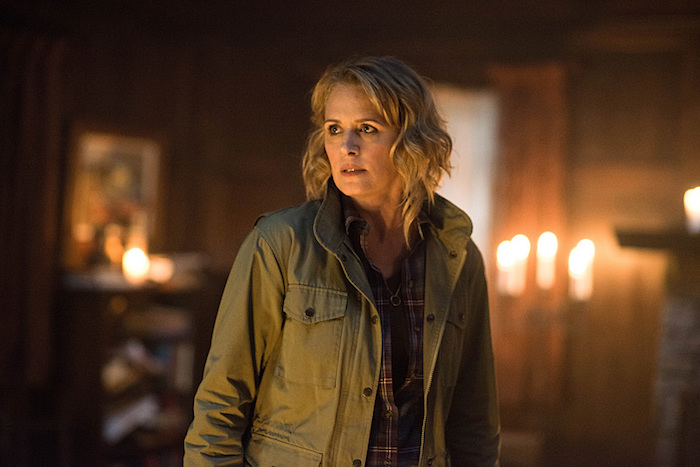
Mary, too, has to answer these questions for herself. She has been brought back to life after being dead for 30 years. It has been a rocky transition—a new realm of technology to learn, grown sons she hasn’t had the chance to really know, and fresh loose ends to chase. Mary has been exploring on her own, trying to put together the pieces of the puzzle she’s been planted into. She’s gone to Lawrence and traced things from John’s journal to learn the truth about what happened after her demise. She stumbled upon the tragic news of Asa’s death and remembered saving him all those years ago. She must pay her own respects and say goodbye. After all, everyone she knows is dead—including this man.
Unfortunately, she’s confronted by the grief of Lorraine head on. As she stands in the kitchen, getting a beer, Lorraine confronts her. Upon learning her identity, Asa’s mother is at first skeptical and then bitter. After all, Mary should be closer to Lorraine’s age but isn’t. And then, there’s the fact that if not for Mary’s rescue all those years ago, Asa would have become an astronaut instead. He would have had a family. He would have gotten married. He would have settled down. As far as Lorraine is concerned, Mary robbed her son of a life by telling him about the life.
The guilt eats at Mary. She’s confronted by the fact that she’s to blame for not just another hunter’s ultimate demise—but that she had turned his whole life upside down by telling him the truth about the thing that she had killed. He had asked, she had told him. That simple confession had led Asa to hunt. It had consumed his life in a way she never wanted. In many ways, it is Asa as a hunter that reflects her own guilt in her sons’ fate, too. After all, Mary never wanted Sam and Dean in the life and yet here they are—both hunters with many wild stories of their own. She can relate to Lorraine’s anger. She feels it seethe inside herself about what has happened to her children in her absence. Hunting can take one’s life in more ways than one. It also took over her husband’s life—destroying him in the end.
And yet, it is clear that she couldn’t walk away from it years ago, either. Sam gently points that out, stating, “Even looking at these, you saved Asa in 1980. After Dean was born, after everyone thought you quit hunting. Seemed like you couldn’t stop then, and I’m guessing you can’t stop now either. ” There’s no accusation in that statement. There’s no anger. Sam merely recognizes that the life has a pull that cannot be explained or resisted. He knows that it is a hard and crazy life, but it is worth it. In many ways, the hunter life has become the perfect metaphor for life itself. To hunt is difficult just as to live is difficult. Mary is learning this lesson here—finding one son understanding of her need for space while the other pushes her away and struggles to understand.
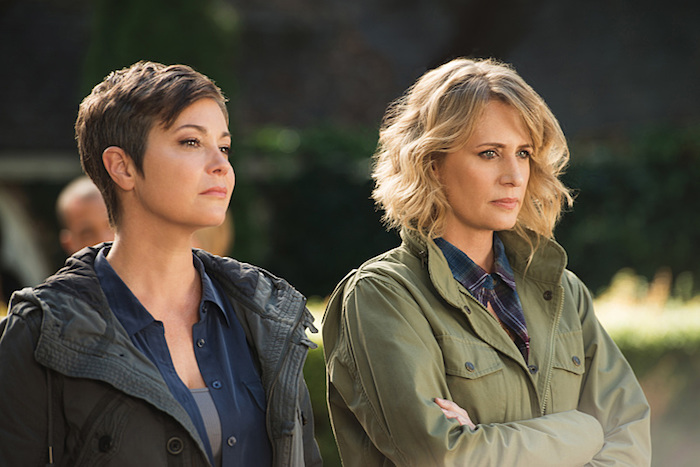
Mary wants to talk to Dean—and yet she can’t find the words. She wants to live—and yet she wants to die. Mary is stuck in a crossroads all her own. While the hunt is taking place around her—and she follows her instincts to attack and kill a possessed Jody—a move that fails—she is struggling to find herself in this foreign world. Life isn’t a straight line or easily explained or tidy. Tying up loose ends isn’t going to solve everything and leave things with a final and clear answer. Instead, it has zigs and zags and ups and downs. Mary has experienced a lot of down since her return—raw grief and pain and loss—but she has also so much to gain
After they’ve exorcised the demon and have the hunter’s funeral for Asa and the other victims, Mary and Jody stand together, shoulder to shoulder. Jody tells her, “I don’t know what’s going on between you and your boys. But I gotta tell you, mom to mom, they are good men. Best I’ve ever met.” Mary knows she speaks the truth. She knows that they are good and just and worthy. And so, she replies, “I know. They’re not the problem.”
It leaves her facing a difficult question as Billie the Reaper emerges. She is there to collect on Dean’s debt and she has chosen to reap Mary anew. The catch? She can’t out right kill Mary. Mary has to decide if she stays or goes. She has been suffering. Billie offers her mercy. She’ll give her a ticket to Heaven. She’ll free her from the difficulties of life. It’s a tempting thought. She can return to her personal Heaven—where her sons and husband are waiting—and let go of all this pain.
Or, she can choose the harder path. It won’t always be happy or easy, but it will always be worth it. She will have her sons in her life. She will be able to bring good to the world through her hunting. She won’t always have to feel like she doesn’t belong. It is worth the effort. And so, Mary refuses Billie’s offer. She says, “Well… then… Then I guess you’re just gonna have to wait.”
It is the summation of so much of “Celebrating the Life of Asa Fox.”
And yet, Sam and Dean, too, learn this lesson themselves. They have been struggling to understand their mother’s resurrection and recent departure. Sam has tried to talk about it while Dean has avoided discussing it at all costs. Life is hard and messy and it’s a lot easier to ignore these things than it is to face them directly. It also helps that they can be there for someone like Jody and get their minds off the situation. She’s hurting and grieving and they can pour their energies into helping her here. It isn’t until Mary arrives that they are thrust back into really having to face this question once more.
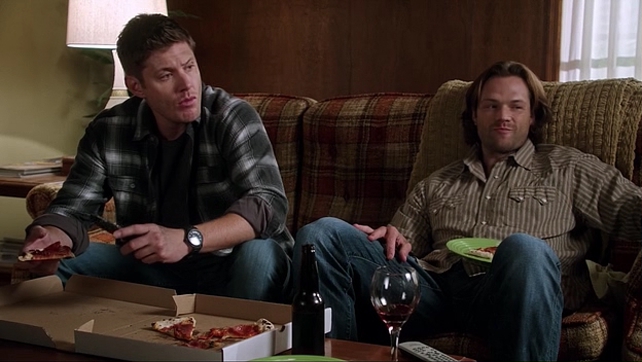
The brothers visit Jody to reconnect and bond with one of their family. They stop by just to simply hang out with her and watch movies and relax. There’s an ease about this calm before the storm—a glimpse into why they do this year after year. It is for moments just like this one—where they can sit back and simply spend time with someone they love. They can tell embarrassing stories—as Sam does by teasing, “He’s more of a, uh… animated Japanese erotica chick.”
And when things turn darker—as they always seem to do—they can stand by someone they love, too. That is what they intend to do here. Sam and Dean also relearn a truth they’ve somewhat discarded over the years. Life is worth protecting and preserving. It is easy to use the demon blade. It is easy to use an angel blade. It is easy to permanently put down a demon—and yet it is also a failure. The person the demon wears is killed in the process. Sam and Dean, then, learn to hesitate, to strategize, and to make all attempts to save anyone possessed through the use of exorcism. It doesn’t always work and it doesn’t always come easy—as Dean learns when confronted by Elvis possessed—but he’d rather save a man than kill him here. It is another fine example of life from death—that life may be harder but it is far more worth it.
And they also learn, in their own ways, the difficulties their mother endures and how they each respond to it. They learn that she saved Asa all those years ago. Dean is devastated. He tells her, “So you’ll text us once a week maybe, but you’ll drive all the way to Canada to see some dead guy? That’s awesome. I’m gonna catch some air.” He sees this is a betrayal, that his mother can’t possibly put in the time and effort to be their mother. Perhaps she doesn’t want them after all. Perhaps she will walk away from them forever. Dean extracts himself first from the conversation and then from the house so he doesn’t have to confront her and face the answer he fears most.
Sam, meanwhile, knows and understands easily where his mother is coming from. He knows Dean, in his own way, does, too. He recognizes Dean’s need for space. He knows that it won’t be fixed overnight. Instead, he will approach his mother with love and kindness and patience. Sam wants her to stay as much as his brother. He loves her as much as Dean loves her. He has no desire to see her walk away from them—or worse. And so he will reach out to her and give her space when needed and work around her own struggles.
Sam takes a moment to explain, to bond with his mother. He senses her inner turmoil and anxiety as she wanders the house and attempts to chase after Dean. He knows that this would be a mistake. After all, to push Dean is to push him away. So, he states with all his empathy, “You don’t have to explain anything. I get it. You need space, and so does Dean. You know? He’s just… We just got you back, and he’s just scared that we’re going to lose you again, that because we’re hunters you’re gonna walk away. But I know that’s not true. Even looking at these, you saved Asa in 1980. After Dean was born, after everyone thought you quit hunting. Seemed like you couldn’t stop then, and I’m guessing you can’t stop now either. This job. This life. It’s crazy and insane, but it’s in our blood.”
Sam needs to say this as much as Mary needs to hear it. He has struggled with his mother’s dilemma many times himself. Does he stay in the life? Does he get out? What does he do? He has walked away more than once—only to be lured back in. He knows it is a difficult life and that things do not come easily by any means. And yet, pushing forward and through the fear, anxiety, and struggle to belong yields good. He saves lives. He makes a difference to others in the world. It is worth all the insanity and the difficulties. Sam can sense that his mother needs to know that—now that she’s been returned to this life and a changed world.
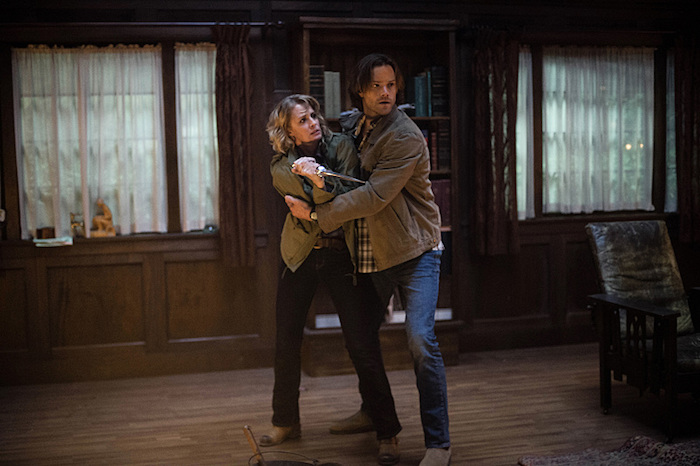
The brothers focus on the hunt quickly—and while they’re separated by Dean being stuck outside, Sam will take it on himself to stay with his mother and keep her safe. He will be her back up and partner as they search for the demon. He will be the one that shoves his mother aside when she tries to kill a possessed Jody—reminding his mother the reason they do this. He will back up his earlier words with this type of action.
Dean, stuck outside, fretting needs to face his own bargaining with life and death. He’s trying to catch his breath, soothe his frayed nerves, and face his mother’s sudden appearance with more patience than he shared inside. It isn’t until Billie confronts him that he realizes there’s something dreadfully wrong. She’s been inside, reaping a fresh soul. Instantly, Dean’s fear rises and he worries that his mother and brother are in danger—that one or the other has been that fresh soul taken. He rushes to knock on the door, only to find it barred. He can’t get in and he can’t be heard by those inside.
It will take bargaining. It will take facing a reaper to get past this. Billie mocks him, stating, “Still, between us, it’s always nice to see a Winchester that can’t get what he wants.”
And yet, Dean has to beg her—he is worried about hunters dying in the house. He is worried about what this might cost the hunting community and his family. The house is on supernatural lock-down. He can’t get in and they can’t get out and there’s something sinister taking place. He needs inside to help them. He can’t do it alone. And so, he convinces Billie to get him inside—a “one time deal” that will allow him to join the fray. In this manner, Dean is choosing the difficult and messy. He is choosing life over the ease of death. He will risk himself in order to save them—and in so doing try and fail at saving the likes of Elvis.
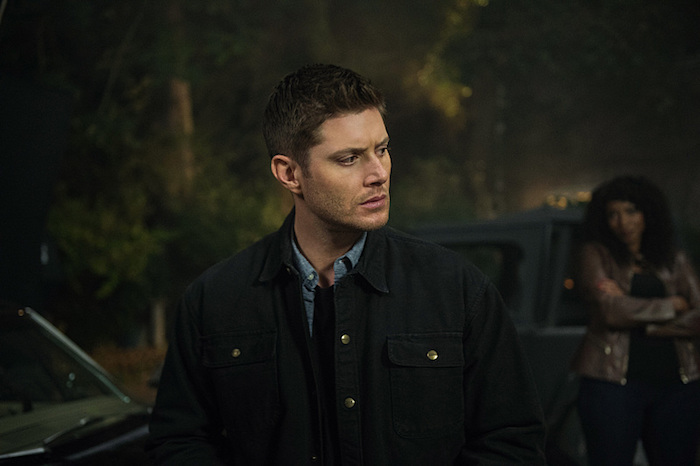
As both brothers are forced to watch a friend of theirs—Jody—become possessed and turn on them, they will both rise to protect her. They will look on in fear at first for their mother, fearing that she will endure another possession as she did the ghost—and at their friend, Jody, that has endured so much since meeting them and being thrust into the hunter’s world. Sam and Dean will lead the charge, choosing to exorcise rather than to kill. They know the risks. It is not a permanent solution. It is not going to fix everything by any means. But, it will give them a fighting chance. It will allow them to choose the harder choice of life over death.
After, when Bucky has been exposed as the real killer of Asa—albeit accidentally—he, too, much face a messy life. The hunter community will cast him out now, tell his story far and wide, and expose him for his duplicity. He told the most stories about Asa—all the while hiding the truth of his actions to cover his butt. It is easier to embrace the death of Asa for Bucky than it is to face its truth head on—and take the consequences for what they are. The brothers are also aware of this lesson, too. They know that not facing secrets, not facing these messy life truths head on, and trying to brush them aside can lead to trouble. They know that it is a lesson they must freshly absorb here. Both Sam and Dean know that life—especially one like theirs—isn’t easy.
And in the end, when they are all standing outside, confronted by Billie and their mother has to face the choice—both brothers stare on in fear and anxiety. This moment could be their last with their mother. Will they have to say goodbye all over again? Will life be too hard for her despite their attempts to welcome her and love her? Will they see her leave them behind, orphaned anew?
They know the choice before her—Sam and Dean have both been put to this test more than once—and they know how tempting it is to die. It is easier to be free of life’s burdens—to put down the fight. They can tell that Mary has struggled since her return. It would be easy to slip back into the abyss and let go of all the loss. It would be easy to go back to a Heaven where her boys are little still and her husband is with her. It would be peaceful. It would give her an escape. The temptation is heavy over the three of them. They can tell that Billie speaks some truth. There is pain in her eyes and she is struggling with the feeling of not fitting in.
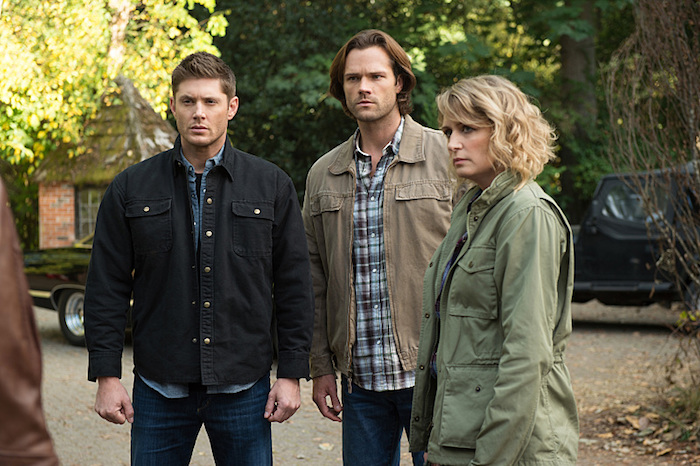
As they wait with baited breath for her answer, both have tears standing in their eyes. They have looks of desperation and fragile hope. Their mother will be the one to make this choice—not them. They can’t stop her from saying yes. They can’t coerce her into staying.
And when she utters, “Well, I guess you’ll just have to wait,” they know that she’s not going anywhere. At least not for awhile.
Billie sums it up best, “Winchesters.”
After all, they know more than most just how precious and precarious life can truly be. They know that it won’t always be easy or tidy, but it is worth fighting for. Dying is easy. It is living that truly tests us all.


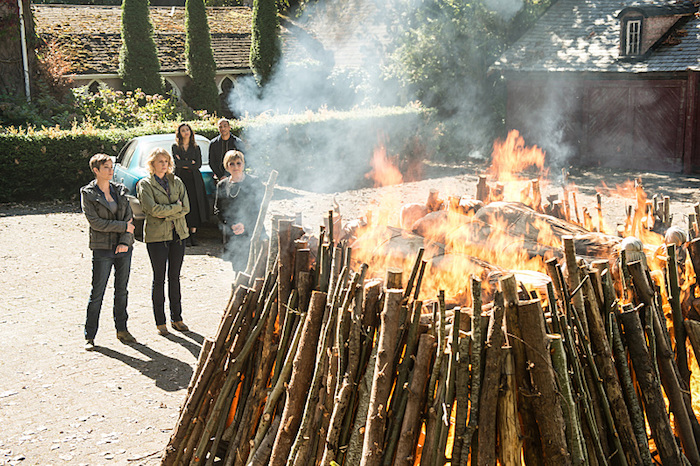
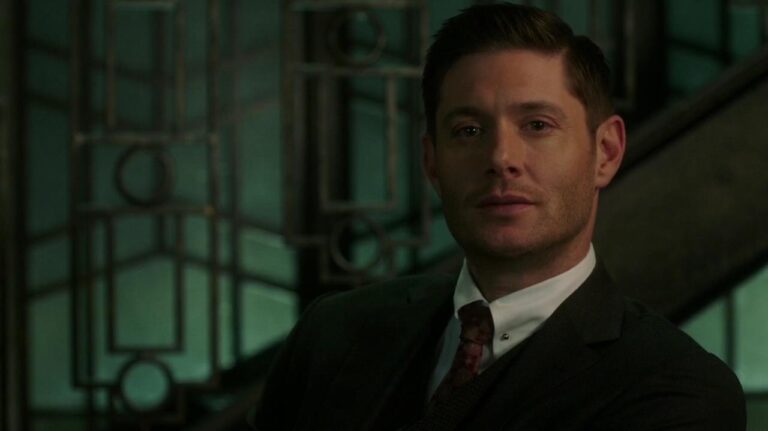
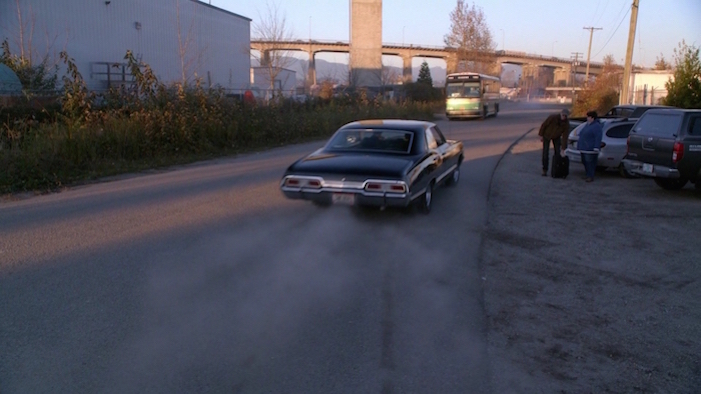
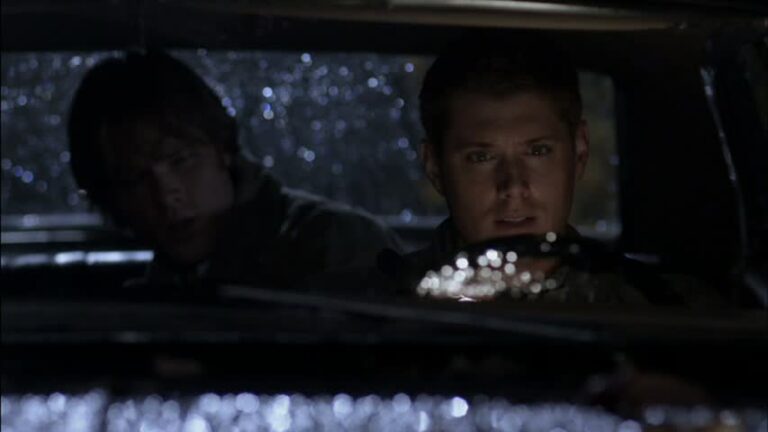
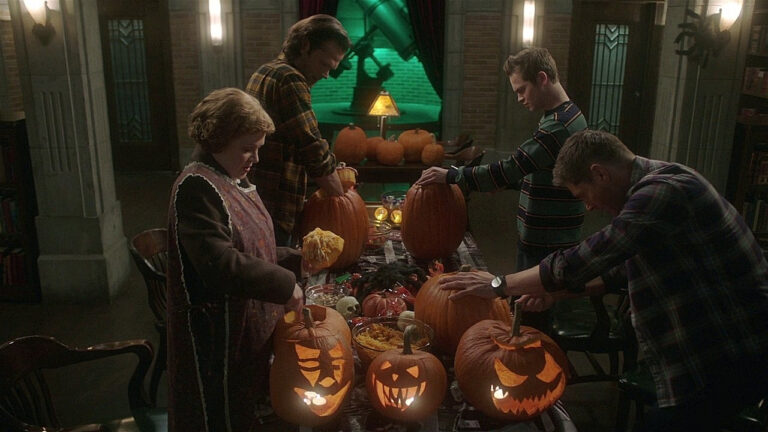
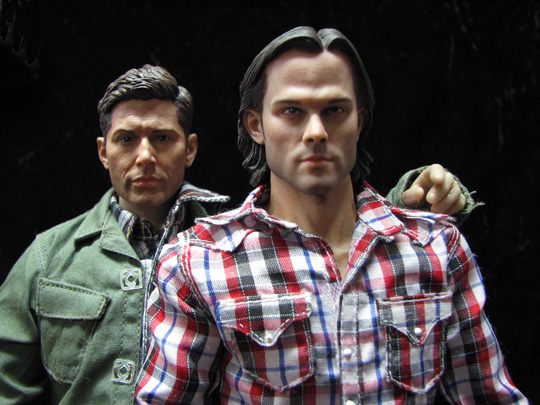

Leave a Reply